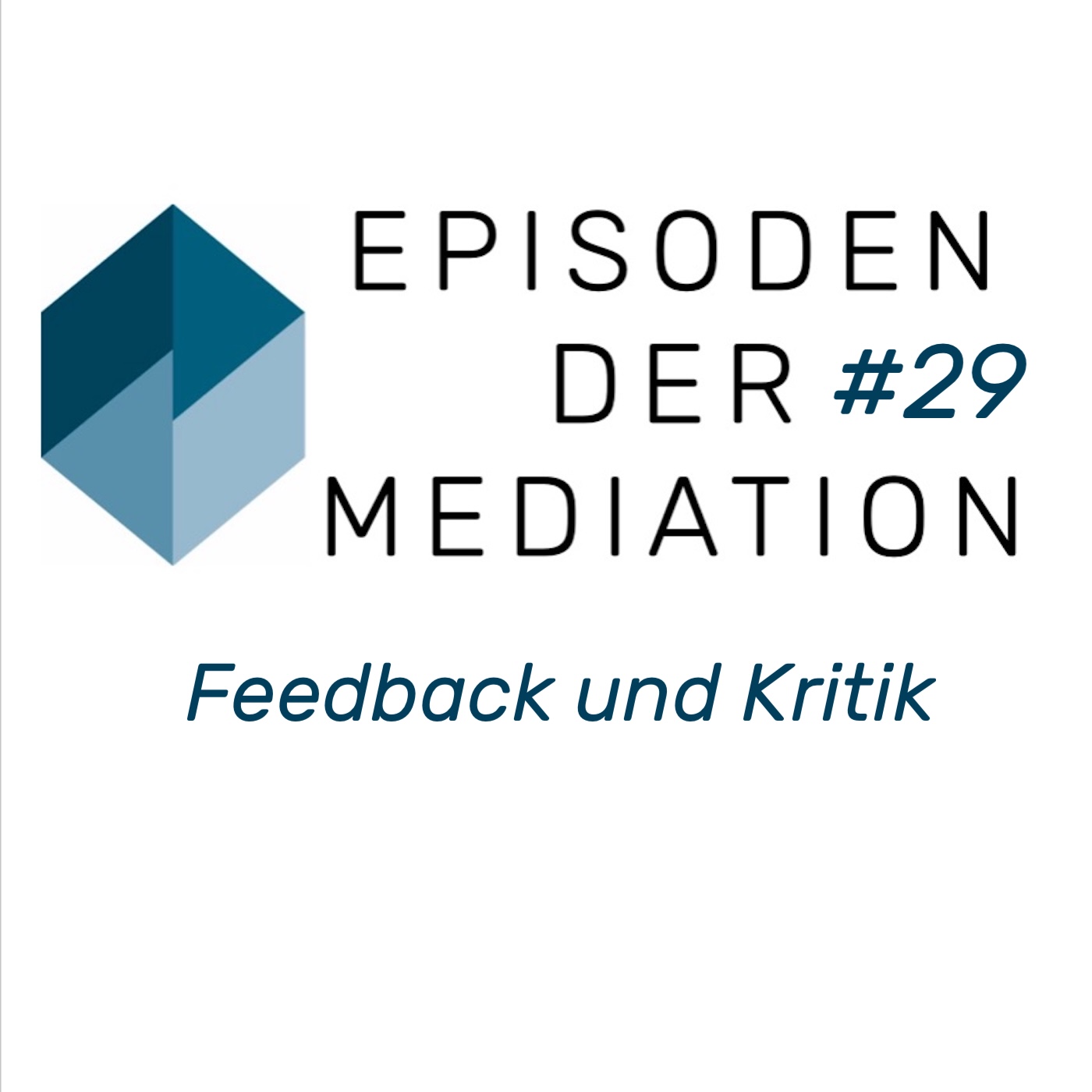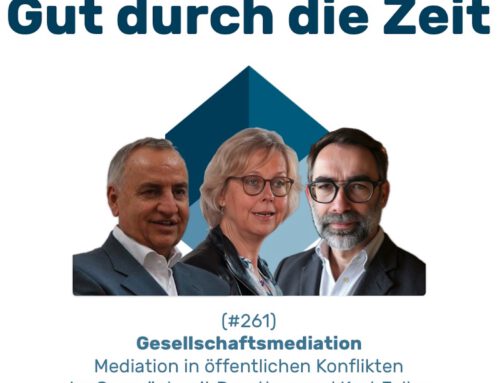#29 EdM – Feedback and criticism
The important difference or who wants to control whom here?
Episodes of mediation.
The podcast on practical questions about mediation and conflict management.
Welcome to the episodes of mediation,
the INKOVEMA podcast on the practical issues of mediation and conflict management.
I am Sascha Weigel and in this podcast I explain case questions from my mediation and conflict counselling practice. I present concepts and models of mediation and categorise different perspectives and decision-making options.
Chapter
0:09 Introduction to feedback and criticism
1:03 The difference between feedback and criticism
3:05 Feedback as a self-control process
4:50 Criticism in the context of mediation
7:22 Coaching and permission to criticise
8:26 Feedback in organisational contexts
9:24 Conclusions on feedback and criticism
Summary of content
Feedback or criticism? - An important distinction
In this episode of the INKOVEMA podcast, I talk about a topic that is often overlooked but is central to my work as a coach and mediator: the Difference between feedback and criticism. In my view, this distinction is important - especially when it comes to how we communicate and relate to each other.
I talk about my own experiences from my coaching and mediation practice and how I regularly invite my clients and mediators to give me feedback. This feedback helps me to improve, learn and reflect. For me, this is crucial: Feedback always starts with the Person who says something about themselves would like to experience. It is a Pro-active self-control process. I - person A - specifically ask others (person B, C, D ...) how they perceive and assess me. Only with this inner willingness is it a feedback process that can be fruitful and lead to a learning process.
Criticism on the other hand, is often introduced in a completely different way. It often comes from outside - i.e. from B, C or D - and is something, that the other person wants to get rid of. Maybe something is bothering them, maybe they want to clarify or change something. The problem with this is that the person A addressed does not necessarily have to have requested this exchange; sometimes it is reasonable for them or A has generally(!) consented to it. They may not be prepared or open to this form of feedback. In my view, this is a crucial difference that is far too rarely taken into account - with far-reaching consequences for communication in organisations, teams or even in personal relationships.
When I talk about "feedback", I don't mean a euphemism for (well-trained, i.e. reeled off) criticism, but a conscious, controllable process. Feedback is voluntary, based on a searching movement - I want to find out something about myself. Criticism, on the other hand, is often experienced as external control - it can be useful and necessary, but is also quickly perceived as intrusive if it comes without being asked.
This distinction becomes particularly clear when working with managers or in mediation. In a coaching context, the willingness to receive feedback is usually a given. In mediation, on the other hand, a sensitive feel for the dynamics of criticism is required - especially when it comes to the role of the mediator themselves. Here, it is important to reflect carefully on your own judgements and impulses and not to fall prematurely into a critical stance.
I also talk about a misconception that I often encounter: that feedback is always constructive, friendly or helpful - and that criticism is automatically authoritarian or negative. It's not like that. In my view, the relationship between sender and receiver is far more important: who wants what from whom - and is the other person prepared to hear it or say it? Every role is risky!
With this episode, I would like to provide more clarity. What is your overall assessment of this topic?





Leave A Comment